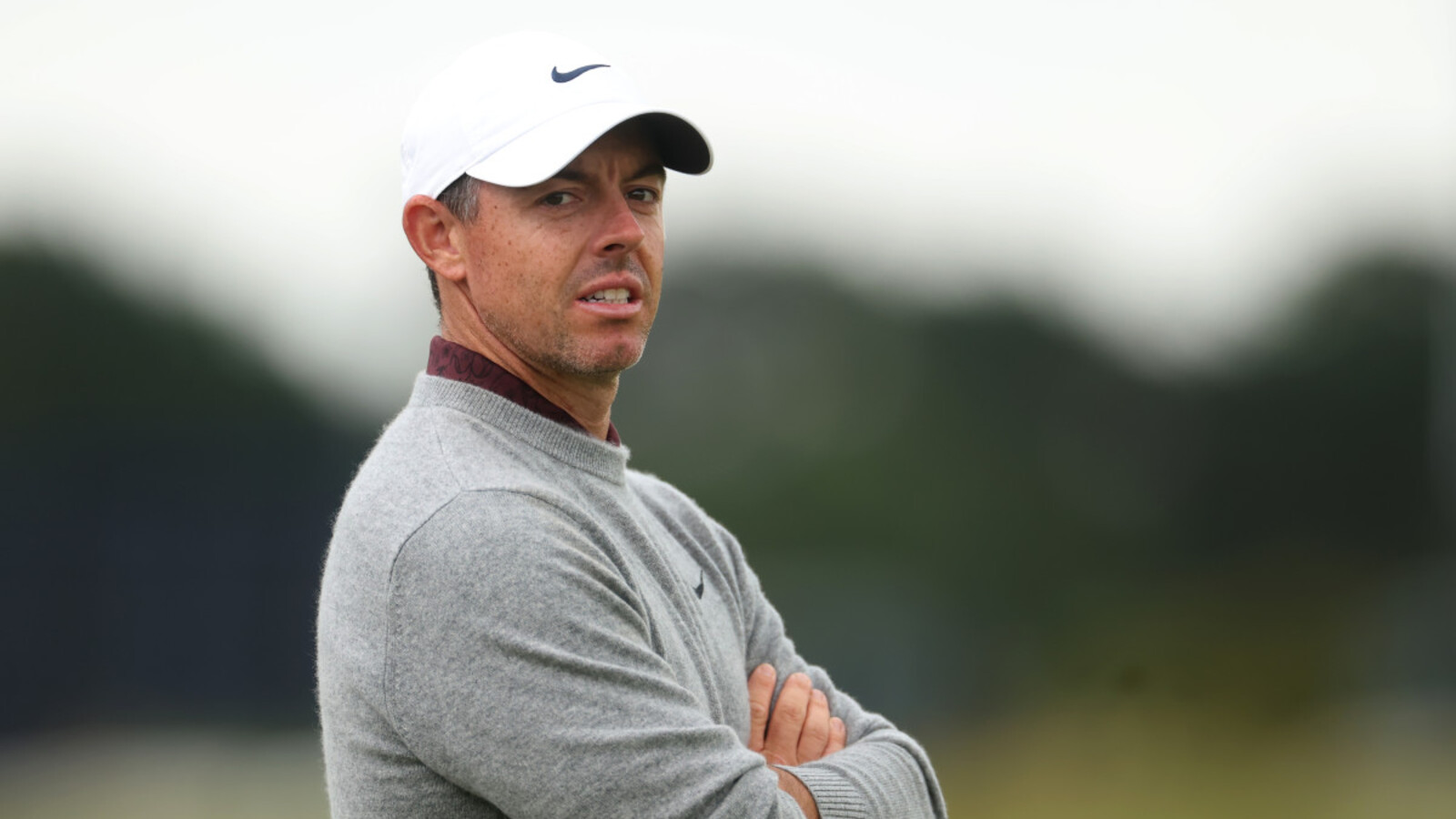
The Red Sox let a very winnable game get away from them on Wednesday night. And now, their season will be hanging in the balance on Thursday night.
The whiplash of consequences in the Wild Card Round is just that severe.
And while Alex Cora’s bold decision to yank Brayan Bello with one out in the third inning may be the headline coming out of New York’s 4-3 win, the game was lost in the smaller moments of the game.
To wit: Top of the seventh inning, tie game, two on, nobody out after an absolute gift from Aaron Boone to leave Carlos Rodon in the game after the starter’s tank had clearly hit E. Ceddanne Rafaela digs in against reliever Fernando Cruz with one of the most basic assignments in sports: Bunt the baseball.
Rafaela couldn’t do it.
After reaching out and fouling off a splitter that was well off the plate, Rafaela … did it again. This time he popped it up to pitcher Fernando Cruz, returning the favor for Boone’s managerial mistake by gifting the Yankees a free out.
Cruz, with the help of a Jazz Chisholm diving stop and the helping hands of baseball’s BABIP gods, pitched out of the inning without allowing the Red Sox to take a lead after the Rafaela mishap.
Rafaela, who did walk in his first plate appearance after his 11-pitch walk in Game 1, also chased a pitch two feet off the plate with two outs in the ninth inning to put himself in an 0-2 hole against David Bednar.
Yet that bad baseball may pale in comparison to what Jarren Duran did — or didn’t do — in the fifth inning. Because all Duran had to do was catch the baseball. He did not.
Despite the dive, and despite the official scorer’s ruling that it was a hit, that was a routine play at any level of baseball, let alone the majors. Yet Duran kicked it, allowing the Yankees to take a 3-2 lead in the fifth.
Duran is 1-for-7 at the plate over the first two games of the series, too, making for a frustrating series thus far.
Getting a bunt down. Making a routine catch. These are plays that have to be made for a team to win playoff games and playoff series. Yet they weren’t in Game 2, and they’re major reasons why the Red Sox will be facing elimination on Thursday night in the Bronx.
Here’s more of what we learned from what was another postseason classic played by the Red Sox and Yankees.
Alex Cora is a madman
Point-blank, period. Alex Cora is crazy.
How often does a manager, in a game where his team can’t be eliminated, pull his No. 2 starter after just 28 pitches in a 2-2 game? The answer, dear reader, is NEVER. Yet Cora, who simply carries himself differently in October, didn’t hesitate to make the move in the third.
And you know what? It worked. Barely. Justin Wilson entered in relief and, after getting Cody Bellinger to fly out harmlessly to left, served up an absolute cookie to Ben Rice.
Rice, who homered in his first at-bat, actually hit this one harder, but the 109.4 mph liner was hit directly at right fielder Nate Eaton, who made the catch to end the threat.
But technically, it worked. And after the bullpen essentially got Monday and Tuesday off (except for closer Aroldis Chapman), Cora knew he had everybody at his disposal in this one. The quartet of Wilson, Justin Slaten, Steven Matz and Zack Kelly would have given him three scoreless inning, if not for Duran’s gaffe in left. And Garrett Whitlock giving up the game-winning run in the eighth certainly wasn’t the manager’s fault.
While the Yankees had only scored on Rice’s first-inning homer, Cora watched Bello and didn’t like what he saw. He made an executive decision that came with tremendous risk, and it proved to be a good one.
Double plays were a killer
Nothing kills momentum in the playoffs more than an ill-timed double play. The Red Sox had three of them.
Top of the third, tie game, two on, one out: After Trevor Story singled home two runs to tie the game at 2-2, Alex Bregman had the chance to open the floodgates. Instead, he sent a 1-1 changeup to second base, starting a routine 4-6-3 double play.
Top of the sixth, tie game, one on, one out: After Trevor Story homered to tie the game (sensing a theme there) to lead off the inning, Bregman walked. Aaron Boone visited the mound but kept Carlos Rodon in the game. The starter was vulnerable. Romy Gonzalez, though, popped out, before Carlos Narvaez grounded to third base for a 5-4-3 double play, on the first pitch of his at-bat. That could have been the inning that Boston won the game. Instead, the threat was quickly extinguished.
Top of the eighth, tie game, one on, nobody out: After Bregman put in a professional at-bat and led off with a single against Devin Williams, Nathaniel Lowe entered as a pinch hitter with the go-ahead run on base. Lowe, though, chased a changeup well off the plate, weakly grounding back to the mound to start a 1-6-3 double play. Another rally ended before it could even begin.
Obviously, they’re not trying to ground into double plays, but the results are what they are. In Game 2, they were devastating for the Boston offense.
Red Sox infield defense: Strong
Nick Sogard made a very nice play in the third inning, moving to his left, going into a slide, fielding the ball, and pivoting to make a strong throw to second base to gun down the lead runner.
(Sogard can also execute a sacrifice bunt, by the way.)
Alex Bregman also made a few plus-level plays at third, though that’s nothing new at this point. His night included inning-ending assists in the second (5-4-3 double play), fourth and sixth. Trevor Story looks to have moved past his late-season throwing issues, too.
It didn’t help win them this game, but it’s been sharp, and it will be a factor if they are able to advance with a win on Thursday.
Nate Eaton should have scored
I actually changed my mind on this, because it’s absurd to have expected Nate Eaton to busting it around third base on a ground ball behind second base with the hopes of scoring on an infield hit and errant throw to first base. Lots of premonition would have been necessary for Eaton to have pulled that off and scored the go-ahead run in the seventh inning.
Yet after looking at it again, there are some very simply reasons for thinking Eaton should have scored.
This took place, of course, when Masataka Yoshida delivered a pinch-hit, infield single. Jazz Chisholm made a diving stop, which prevented runs from crossing the plate, but his throw to first skipped away from first baseman Ben Rice, opening the door for one of baseball’s fastest players to make a run for home.
Initially, I felt Eaton should not have been expected to score, as everything took place behind him. If a throw to first base was simply late but not errant, then Eaton would have been a dead duck whipping around third and heading to home. The tag play at the plate would have been deflating for the Red Sox and sent Yankee Stadium into a delirium.
But watching the high-home camera, it’s clear that Eaton and third base coach Kyle Hudson should have been more prepared to pounce on the opportunity.
Eaton was at third base and looking at Chisholm when the second baseman made the throw. Meanwhile, third baseman Ryan McMahon was almost standing in the shortstop position, paying no attention to Eaton. With speed and base running being major factors of Eaton’s game, he should have known that he had plenty of room to get frisky by bouncing off third base toward home plate, knowing that there was nobody at the bag to tag him out if a throw came that way.
Yet instead of aggressively bouncing down the line, Eaton stopped and watched the throw, and he was actually moving back to third base when the ball skipped away from Rice.
Eaton should have been 20-25 feet down the line when the ball skipped away, but he lacked awareness of where the third baseman was, and he didn’t innately sense the opportunity to put himself in position to make a game-changing play on the bases.
Cora didn’t appreciate hearing such a suggestion in his postgame press conference.
“That’s their opinion,” Cora said when told the broadcast suggested Eaton could have scored. “I think it’s easy from up there to say that he could score. They’re not down there with us.”
They’re not … but they’re right. That was a major missed opportunity.
Fernando Cruz used up his World Series celebration
In the unlikely event that Fernando Cruz finds himself in the position to close out the World Series, and in the just-as-unlikely event that he pulls it off, the 35-year-old won’t be able to debut his top-level celebration. He used that one up in Game 2 of the Wild Card Series after giving up a 100-plus mph line drive that managed to find some leather on the warning track in center field.
It was A LOT.
Trevor Story came up about 15 feet shy of making this, officially, The Trevor Story Game™. A grand slam, after already driving in the first three runs of the game, to eliminate the Yankees in their stadium would’ve been one for the ages. But not on this night.
It’s just a shame that the broadcast didn’t have the WHOOP heart rate monitors that we saw in the Ryder Cup for Cruz. He might’ve made that thing shatter.
(It was a cool moment. But celebrating Trent Grisham for making a great play instead of celebrating yourself for giving up a laser would have been the better move.)
Garrett Whitlock getting ‘tired’ isn’t great news for Boston
From June 29 until Sept. 26, Garrett Whitlock allowed two earned runs across 32 innings in 33 appearances. He had a 0.875 WHIP and a 0.56 ERA in that span. He was as lights-out as light-out gets for a long time.
And for the first six batters he faced, he looked like that guy. He did surrender a double but also struck out three batters and welcomed weak contact. With two outs in the eighth, this thing was going to the ninth tied.
But then … Whitlock got “tired.”
“Felt good. Got tired towards the end, but thought I made some good pitches, and they did a good job,” Whitlock said. “I definitely lost command. And unfortunately that happened.”
“That” was a seven-pitch walk to Jazz Chisholm, an at-bat where none of the four balls was anywhere close to the strike zone, followed by the game-winning double by Austin Wells.
That ball getting swallowed up by the angled fence in foul ground was a stroke of bad luck for Whitlock, but that’s baseball. From there, Whitlock gave up another single and then a truly wild walk, ending his night after 47 pitches.
Whitlock indicated he wants to pitch if needed in Game 3, but if he was tired in Game 2, a trip back to the mound one night later doesn’t seem to be in the cards.
Sometimes, you’ve got to appreciate a great photograph
And this is one of them.
It probably won’t end up hanging in any Boston bars, but hey: Art is art.
Unknowns abound in Game 3
Connelly Early made his MLB debut in a minor league park in West Sacramento less than a month ago. On Thursday night, he’ll be given the ball and asked to keep the Red Sox’ season alive in a raucous Yankee Stadium.
No pressure there.
Cam Schlittler may be an old veteran by comparison, having made his MLB debut all the way back on July 9, but the rookie is every bit of the wild card that Early is for Boston.
Schlittler is from Walpole and pitched at Northeastern (as well as Harwich in the Cape League), so get ready for plenty of that from the broadcast. But as for his performance, he’s been great in his 14 big league starts, posting a 2.96 ERA and 1.219 WHIP, striking out 84 batters in 74 innings.
Early posted a 2.33 ERA and a 1.086 in his four big league starts, but obviously, none of those compare to the one that awaits him on Thursday night.
As was the case in Game 1 and again in Game 2, the Red Sox will have the advantage at the manager spot in Game 3. That one’s a blowout in favor of Alex Cora over Aaron Boone.
Everything else, though? None of it can properly be predicted — though, based on the first two games of this series, chaos and tension feel like safe bets to show up at Yankee Stadium for the finale.



